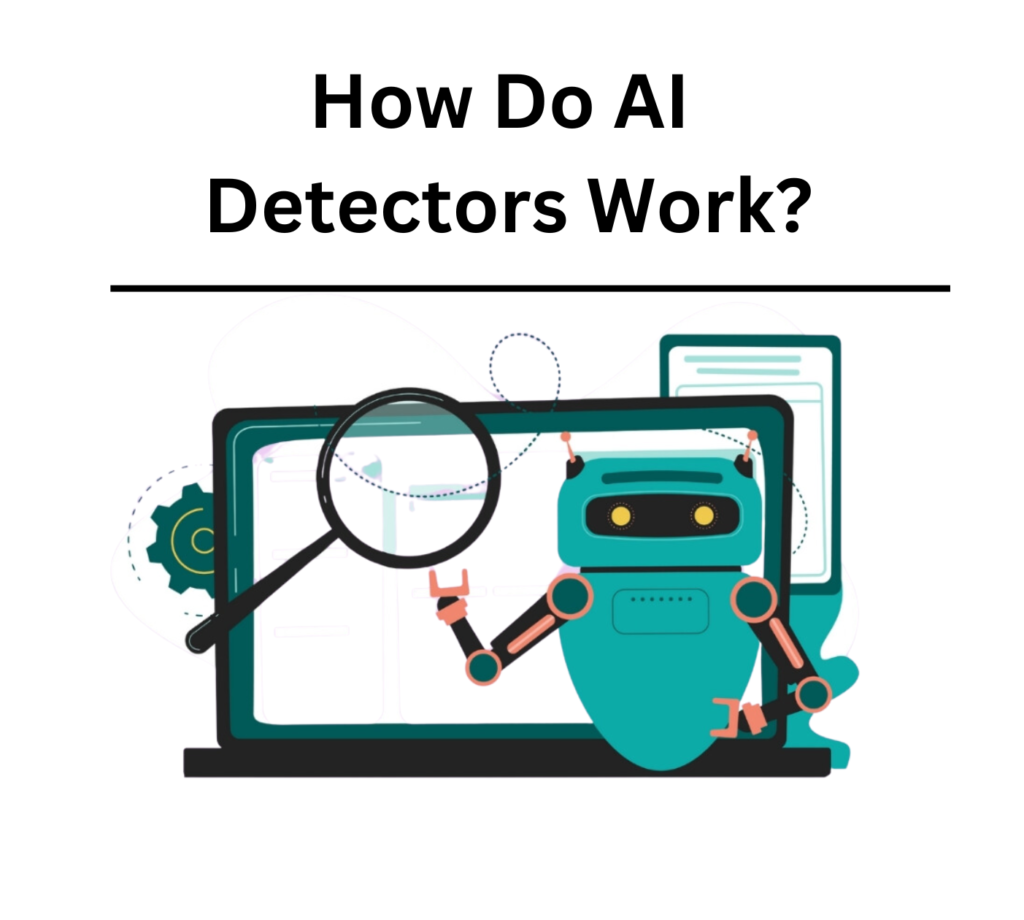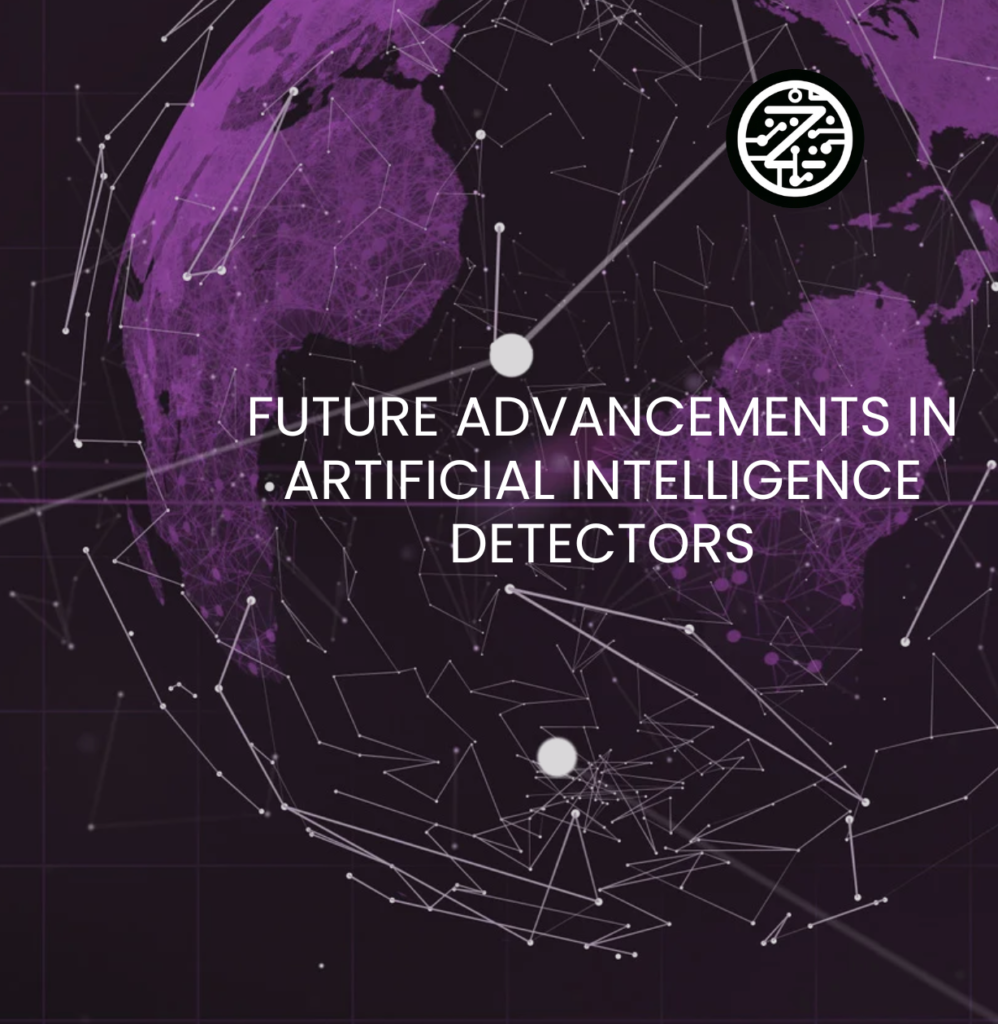AI Detectors: Enhancing Cybersecurity with Advanced Technology

In today’s rapidly evolving technological landscape, artificial intelligence (AI) has undoubtedly become a game-changer. However, alongside its many benefits, AI also brings new challenges, particularly in terms of security and defense. As AI becomes more sophisticated, so do the threats associated with it. Therefore, this has given rise to the development and implementation of artificial intelligence detectors, cutting-edge tools that help defend against these rapid advancements.
How Do Artificial Intelligence Detectors Work?
Artificial intelligence detectors rely on a combination of machine learning algorithms and data analytics to identify potential security threats. These detectors continuously analyze network traffic, user behavior, and system logs to detect anomalies that deviate from normal patterns. For instance, in 2020, Darktrace, a leading AI cybersecurity company, successfully thwarted a sophisticated cyberattack on a global financial institution by detecting unusual data transfers characteristic of a ransomware attack. By establishing a baseline of normal behavior, AI detectors can quickly identify unusual activities that may indicate a security breach. Utilizing advanced heuristics and predictive modeling, these detectors differentiate between legitimate and malicious activities, allowing organizations to respond effectively to potential threats. IBM’s QRadar Advisor with Watson is another example, using AI to sift through vast amounts of security data to identify threats that traditional methods might miss.
One key advantage of AI detectors is their ability to adapt and learn from new data. By continuously updating their algorithms based on new threat intelligence, these detectors improve their detection capabilities over time. This adaptive nature enables AI detectors to stay ahead of evolving cyber threats, as demonstrated by Cylance’s use of AI to predict and mitigate an emerging malware threat before it spread widely. Additionally, AI detectors can automate threat detection and response processes, reducing the burden on cybersecurity teams and enabling faster incident response times. For example, Microsoft’s Azure Security Center uses AI to automate the identification and remediation of security vulnerabilities, significantly speeding up response times and reducing the workload on IT staff.

Benefits of Using Artificial Intelligence Detectors
The utilization of artificial intelligence detectors offers numerous benefits for organizations looking to bolster their cybersecurity defenses:
Real-Time Threat Detection: AI detectors provide real-time monitoring of network traffic and system logs, swiftly identifying and mitigating security threats before they escalate into serious incidents.
Automation of Security Tasks: By automating routine security tasks such as threat detection and incident response, organizations can reduce the burden on cybersecurity teams and improve operational efficiency.
Advanced Analytics and Reporting: AI detectors generate detailed reports on security incidents, providing valuable insights into the nature and scope of potential threats. Consequently, this allows organizations to identify trends and patterns in cyber attacks and proactively address vulnerabilities.
Challenges in Developing and Implementing Artificial Intelligence Detectors
While artificial intelligence detectors offer significant benefits, they also present unique challenges in terms of development and implementation:
Data Quality for Training: High-quality data is essential for training the machine learning algorithms that power AI detectors. Without access to large and diverse datasets, these detectors may struggle to accurately identify security threats and anomalies.
Continuous Monitoring and Tuning: Machine learning algorithms require regular updates and refinements to adapt to new threats. This ongoing maintenance process can be complex and labor-intensive.
Integration with Existing Systems: AI detectors need to seamlessly integrate with other security tools and technologies to provide a comprehensive defense mechanism. Ensuring interoperability and data sharing between different security solutions can be a complex task.
Real-World Applications of Artificial Intelligence Detectors
The versatility and effectiveness of artificial intelligence detectors have led to their widespread adoption across various industries and use cases:
Cybersecurity: AI detectors play a crucial role in detecting and mitigating security threats by continuously monitoring network traffic and system logs to identify anomalies and suspicious activities.
Financial Services: AI detectors are used to detect fraudulent activities and protect against financial crimes by analyzing transaction data and user behavior.
Healthcare: AI detectors enhance patient care and improve operational efficiency by analyzing medical data to identify potential health risks and provide personalized treatment recommendations.
Future Advancements in Artificial Intelligence Detectors
As artificial intelligence continues to evolve, so too will the capabilities of AI detectors. Future advancements are likely to focus on enhancing their predictive capabilities and improving their ability to detect emerging threats. By incorporating advanced predictive analytics and deep learning techniques, AI detectors can anticipate potential security risks and preemptively mitigate them before they materialize.
Another area of advancement is the integration of cognitive computing and natural language processing technologies. This will enable AI detectors to understand and interpret human language, improving incident response capabilities and decision-making processes. Additionally, future AI detectors will focus on enhancing their scalability and interoperability, allowing for seamless integration with existing security systems and processes.

Ethical Considerations and Concerns
While artificial intelligence detectors offer significant benefits, they also raise ethical considerations and concerns that must be addressed:
Bias and Discrimination: Machine learning algorithms may inadvertently perpetuate biases present in training data, leading to discriminatory outcomes. Therefore, organizations must ensure that AI detectors are trained on diverse and representative datasets.
Privacy and Data Protection: AI detectors process large amounts of sensitive data, raising concerns about data privacy and confidentiality. Thus, robust data protection measures and compliance with data privacy regulations are essential.
Transparency and Accountability: Organizations must be transparent about the capabilities and limitations of their AI detectors and provide clear explanations of how they make security decisions. Promoting transparency and accountability fosters trust with stakeholders and ensures responsible use of AI technology.
Conclusion
In conclusion, artificial intelligence detectors play a crucial role in defending against rapid technological advancements and evolving cyber threats. By leveraging advanced algorithms and machine learning capabilities, AI detectors enable organizations to detect and mitigate security threats in real-time, empowering them to stay ahead of cyber attackers. As AI detectors continue to evolve and incorporate new technologies, they will become even more critical in defending against emerging threats and ensuring the security of our digital ecosystem.
However, it is essential for organizations to address ethical considerations and concerns to ensure responsible and ethical use of these tools. By prioritizing ethical AI practices and implementing robust data protection measures, organizations can harness the full potential of AI detectors while upholding the trust and confidence of their stakeholders.
In the face of rapid technological advancements and the ever-evolving threat landscape, artificial intelligence detectors serve as invaluable tools for organizations seeking to enhance their cybersecurity defenses and protect their digital assets. By embracing the capabilities of AI detectors and staying vigilant against emerging threats, organizations can build a robust security posture that enables them to navigate the complexities of the digital age with confidence and resilience. Consequently, the rise of artificial intelligence detectors marks a new era in cybersecurity, where proactive defense mechanisms and adaptive technologies are essential for safeguarding our technology-driven lives.

Empower your Brand & Captivate your Audience With techitok right away and Boost your Business.
Insights
- IoT
- Blogs
- Cloud
- AI Trends
- Case Studies
- Blockchain
- Metaverse
- Future of Work
Services
- Cloud
- Consulting
- Cybersecurity
- Data and Analytics
- Enterprise Solutions
- Artifical Intelligence
- Sustainability Services
- Cognitive Business Operations
- IoT and Digital Engineering
Industries
- Retail
- High Tech
- Capital Markets
- Healthcare
- Technology
- Manufacturing
- Banking & Finance
-
Energy, Resources,
and Utilities -
Communications
Information and
and Media Services
